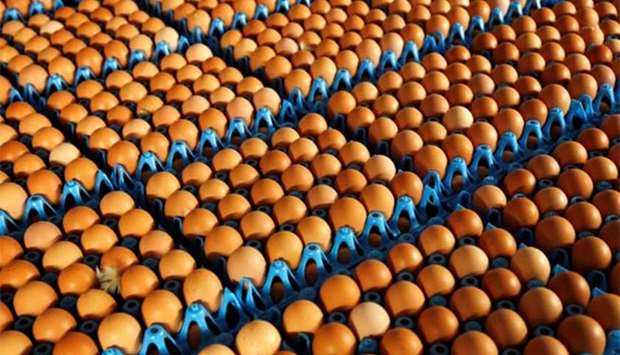Dutch police arrested two suspects on Thursday as part of an investigation into the illegal use of a potentially harmful insecticide in the poultry industry, the Dutch prosecution service said.
Millions of chicken eggs have been pulled from European supermarket shelves as a result of the scare over the use of the insecticide fipronil, and hundreds of thousands of hens may be culled in the Netherlands.Prosecutors said in a statement they had conducted raids at eight locations in the Netherlands and Belgium, confiscating cars and seizing bank accounts and real estate.
The arrested suspects were directors at Dutch company Chickfriend, which is at the centre of the scandal. Officials at the company could not be reached for comment.
Raids were conducted at locations linked to Chickfriend, which allegedly used the pesticide, as well as potential suppliers.
The company directors are suspected of threatening public health and possession of a prohibited pesticide, prosecutors said.
Fipronil is a popular insecticide to treat pets for fleas and ticks but it is forbidden for use in the food chain. The World Health Organisation considers fipronil to be moderately toxic and says very large quantities can cause organ damage.
Romania's food safety authority, ANSVSA, seized one-tonne of German origin liquid egg yolk contaminated with fipronil from a warehouse in the western county of Timis, it said on Thursday.
"The quantity was seized from the storage space of the unit which received it from Germany. No amount of that bunch was sold on the Romanian market. The 1,000-kilogram egg yolk will be neutralised by incineration," ANSVSA said.
In Britain, the Food Standards Agency (FSA) said it had found more eggs than previously believed had entered the food chain, mainly through processed food.
"It is very unlikely that these eggs pose a risk to public health, but as Fipronil is unauthorised for use in food-producing animals we have acted with urgency to ensure that consumers are protected," it said.
It is likely that the number of potentially contaminated eggs to enter the UK is closer to 700,000 than 21,000 previously reported, the FSA said.

